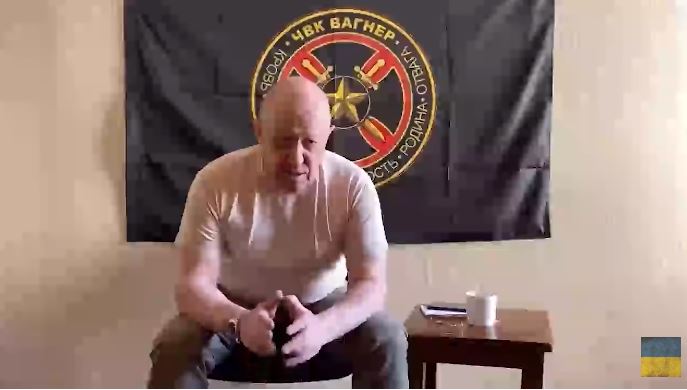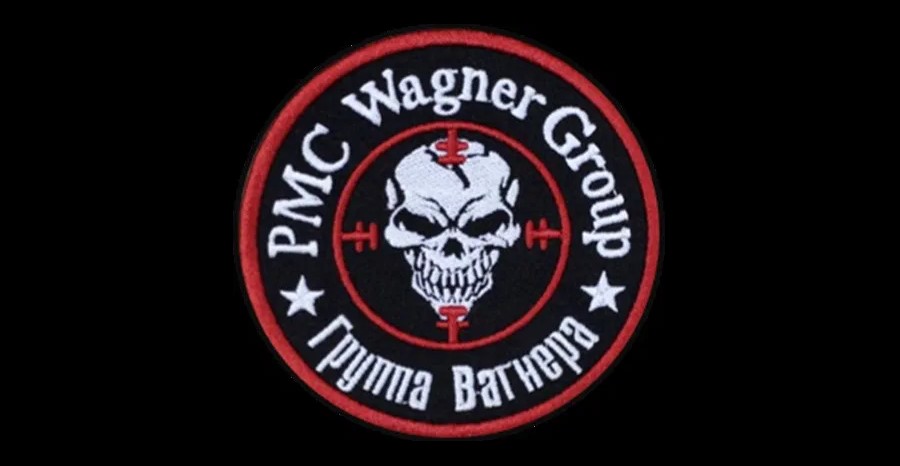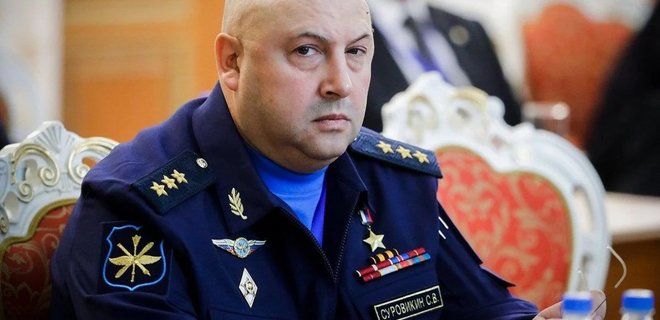Yevgeny Prigozhin, leader of the Wagner PMC, made the first audio statement after the withdrawal of his troops from Moscow, explaining why it made a surprising retreat after advancing to within 200 km from Moscow.
In a statement published on his Telegram channel, the Wagner chief says that his mercenaries withdrew because they “didn’t want to spill Russian blood.”
“We went to demonstrate our protest, not to overthrow the government in the country,” said Prigozhin, who likely arrived in Minsk after having the Kremlin drop his criminal case this morning.
Prigozhin named the main goals of the “march of justice,” stating that he started Wagner’s armed insurrection on 24-25 June because the PMC was ordered to come under the control of the Russian Ministry of Defense on July 1, which would mean the end of its existence.
He claims that only about 2% of the Wagner fighters were ready to sign a contract with the Ministry of Defense, and none of the demands to the Russian MoD he made about retaining the PMC were implemented. Prigozhin likely refers to a “contract” that he drafted and sent to Russia’s military leadership, defying the deadline to subordinate Wagner to Russia’s MoD on 1 July.
Wagner’s leader says that awaiting the deadline, the military company, which plays a crucial role in Russia’s war against Ukraine, had prepared their military equipment to be publicly handed in to the headquarters of Russia’s Southern Military District, a key command center for Russia’s invasion of Ukraine, on June 30.
But, as Prigozhin claimed that on June 23, PMC camps were attacked by the armed forces of the Russian Federation, which resulted in the death of 30 Wagner fighters. After which, the head of Wagner made an audio statement, saying that he views this attack as an attempt to destroy the PMC and they are ready to respond, after which his troops began a “march of justice.”
Over 24 hours, Wagner marched 780 kilometers in the direction of Moscow and not a single Wagner soldier was killed during the march, claims Prigozhin, despite Russian aircraft dropping bombs and firing rockets on columns of their equipment. At the same time, he says, several of his mercenaries were wounded, and two Russian soldiers who had responded to Prigozhin’s call to join Wagner’s quest were killed.
The purpose of the rebellion, according to Wagner’s chief, was not to overthrow the Russian government but to prevent the destruction of the Wagner PMC and to hold accountable those who, according to Prigozhin, made a huge number of mistakes in carrying out Russia’s war in Ukraine.
Prigozhin claims that the 24-hour “march of justice” exposed serious flaws in Russia’s defense since, during this time, Wagner troops managed to seize military sites in Rostov-on-Don and managed to advance to within 200 kilometers of Moscow.
But approaching the capital, Prigozhin decided to stop the march, arguing that “a lot of Russian blood could be spilled,” which is something he wouldn’t want to do. At the same time, according to the head of the PMC, he received a proposal from the President of Belarus, Alyaksandr Lukashenka, to seek possible solutions for the “continued operation of the Wagner Group in a legitimate jurisdiction.”
Wagner’s leader asserted that had the “level of morale and readiness to perform tasks” of the Russian Army been on par with his PMC, Russia’s “special military operation” in Ukraine, a codename for its invasion, would have lasted a day. “We showed a master class of what 24 February 2022 was supposed to look like,” referring to the start of Russia’s full-blown war against Ukraine.
He claimed that civilians in Russian cities “were happy” to see Wagner and greeted them with Wagner emblems and flags because they saw its “march of justice” as not only about Wagner but about “the fight against bureaucracy and other ills” plaguing Russia.
Wagner founder to leave for Belarus as Russia promises to drop criminal charges
What he will do there is unknown, Wagner fighters are promised not to be prosecutedhttps://t.co/8skoVBOFiu
🎥 Prigozhin departs from Rostov this night to cheering of bystanders, via Novaya Gazeta pic.twitter.com/f2tV1vDRlx— Euromaidan Press (@EuromaidanPress) June 25, 2023
Wagner coup: what happened earlier
After claiming that the Russian Ministry of Defense delivered a missile strike on the flanks of Wagner PMC and announcing a “march for justice” on the night of 24 June and seizing control of Rostov-on-Don, the headquarters of Russia’s invasion army, Wagner financier Yevgeny Prigozhin was prosecuted for organizing an armed insurrection and faced up to 20 years in prison.
In a televised address on Saturday morning, Vladimir Putin said that all those who had “chosen the path of blackmail and terrorist methods” would be punished. According to Ukrainian intelligence, the Russian dictator urgently left Moscow for Valdai, which is between Moscow and St.Petersburg.
Prigozhin has refused to lay down arms and said that Wagner mercenaries were the true “patriots” of Russia. The Russian media outlet Vazhnye Istorii wrote, referring to its sources in the Presidential Administration, that the Kremlin tried to negotiate with Prigozhin but got rejected.
The press service of Belarusian President Alexander Lukashenko reported that the Belarusian leader had been in talks with Prigozhin all day on 25 June on behalf of Putin. A few minutes after this news, the owner of the PMC announced that his mercenaries were returning to the field camps as they were only 200 km from Moscow.
The Kremlin announced that the criminal charges against Prigozhin will be dropped and he will depart to Belarus. In the night of 25 June, Prigozhin departed from Rostov, with bystanders cheering him on. On 27 June, his plane landed in Minsk; Vladimir Putin said that Wagner PMC fighters could join Prigozhin in Belarus.
Russia lost seven aircraft during the mutiny, as Wagner forces shot down the forces deployed to thwart the insurrection. Russian pro-war Telegram channels estimate that 13-20 Russian servicemen were killed. Additionally, an oil depot in the Voronezh Oblast was blown up, and 19 houses and roads were damaged by the march of Prigozhin’s private army in Russia, according to Russian pro-war media and Telegram channels.






